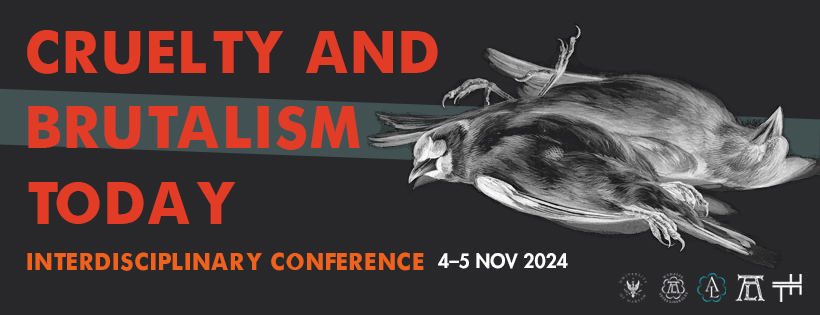Michał Paweł Markowski
(University of Illinois Chicago)
Abstract:
Cruelty, in the broadest sense, means to draw existential profit from inducing the mental and physical suffering of another being. It is anchored in the urge to compensate for the lack of individual or communal satisfaction. The more of this existential deficit in everyday life, the higher the chances for cruelty to creep into the life of an individual or a group. Taking as an example one of the founding texts of Polish Modernity, the author shows how cruelty becomes an efficient tool for reintroducing cohesion in a troubled community. Cruelty, along with scapegoating, hatred, and shaming, is not an unexpected deviation, a disposable excess, or an exception from a more sublime norm but a fundamental gesture of a community that wants to overcome persisting existential traumas. This community has no other remedy for its gripping experience than the violent and—simultaneously—relieving incapacitation of others, who become directly responsible for the existential misery of perpetrators. If this community happens to be, as in the case analyzed, Christian, the obvious consequence would be forcing a hypothesis about the cruel (not perverse) core of Christianity and—pushing the logic of the argument closer to our historical condition—about the cruel foundations of Polish Modern culture.
Bio:
Michał Paweł Markowski (1962), The Stefan and Lucy Hejna Family Chair in Polish Language and Literature at the University of Illinois, Chicago, and Head of the Department of Polish, Russian, and Lithuanian Studies at UIC. He is also a tenured Research Professor at Jagiellonian University, where he created in 2007 the Centre for the Advanced Studies in the Humanities at Jagiellonian, where he served as the first Director until he moved to Chicago in 2010. Since 2008 he has directed The International Literary Joseph Conrad Festival in Kraków. Now works as an expert for The European Research Council in Brussels. Author and editor of more than thirty books on literature and philosophy and several hundreds of articles and essays translated subsequently into English, French, German, Belarussian, Czech, Slovakian, Serbian, Bulgarian, Ukrainian, Swedish, Slovenian, Hungarian, and Romanian. The most important monographs include The Inscription Effect: Jacques Derrida and Literature (1997), Nietzsche: Philosophy of Interpretation (1997), Desire for Presence: Philosophies of Representation from Plato to Descartes (1999), Identity and Interpretation (2003), Black Waters: Gombrowicz, World, Literature (2004), Theories of Literature in the 20th Century (2 volumes; 2006), Polish Modern Literature (2007), Universal Dissolution: Schulz, Existence, Literature (2012). His The Politics of Sensitivity: Introduction to the Humanities (2013) opened a trilogy on social and political aspects of humanities, which has been complemented by Wars of Modern Tribes (2019) and Poland, Bliss, and University. An Educational Story (2021). His Collected Texts (1988-2023), gathering all papers and essays not included in authorial books, will be published in 2023-2024 in three volumes (t. 1: Interpretation; t.2: Politics; t. 3: Representation). His unpublished Polish essays on Polish literature will be edited in a volume tentatively titled The Home and the World. The Dialectical Adventures of Polish Modern Literature. He translated works by Proust, Barthes, Blanchot, Derrida, Foucault, Lyotard, Deleuze, Kristeva, Rorty, and Perec. He edited the writings of Friedrich Schlegel, Marcel Proust, Roland Barthes, and Julia Kristeva. He penned six collections of essays: Anatomy of Curiosity (1999), Excess: Essays on Writing and Reading (2002), Desire and Idolatry (2004), Life Measured by Literature (2007), Sun, Possibility, and Joy (2010), and The Dribble (2015). Co-editor of two prestigious book series in Polish: Hermeneia (Jagiellonian Publishing House) and Horizons of Modernity (Universitas, over 100 volumes published). His book, Day on Earth: Travelling Prose (2014), combines fiction, travel essays, and photography. An exhibition of his photographs, Line and Land, took place in Chicago in 2015. He penned three travel photo essays (Andalusia, America, India) and has had a robust media presence for over three decades.
